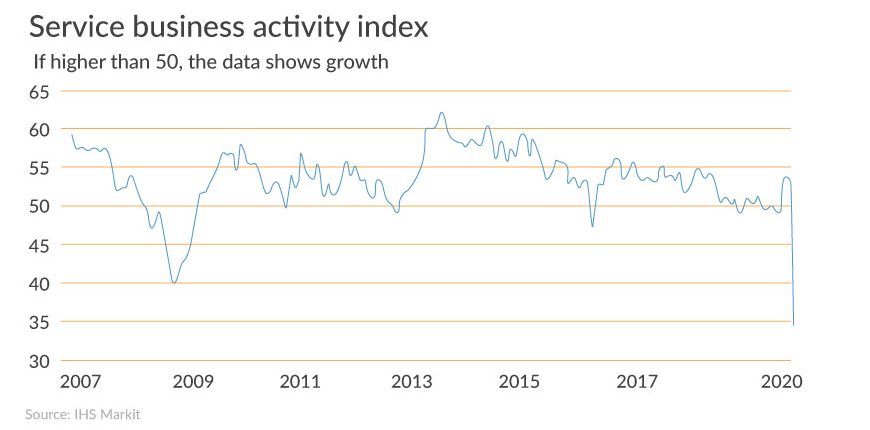Topics:
Global Economy Bounce Back – A matter of ‘When’ rather than ’If’
Posted on December 18, 2020
Written By Akhilesh Pandey

I’ve been part of the offshore recruitment process outsourcing industry for over 10 years now, and I am yet to meet a person who has witnessed such a sharp economic downswing at a global level. The labour market met with a steep decline over the last three months, as the COVID-19 pandemic, along with the worldwide lockdown, pushed the economy into recession. I looked at the Purchasing Manager Index (PMI Index), and it had dropped from 54.5 in February to a record low of 13.8 in April.


The economy at present is going through one of the most challenging times, and it’s a harsh reality that we must accept. But just because it’s down at present does not mean it will stay that way forever. There are signs of economic recovery. A deeper look into the PMI index showed that it has moved up from 13.8 to 28.9 in May. It is still below the 50.0 mark – the benchmark that highlights the difference in contraction and growth. But it’s still a telling sign of economic recovery, nonetheless.
I’d also like to bring your attention to what happened in the US. In the last month, economists predicted that around 8.5 million jobs would be lost in the subsequent months. But what happened in May was the complete opposite – 2.3 million new jobs were created. Of course, this could be a fallout of people coming back to work after being furloughed or laid off, but even if that was the case, these numbers still show a positive trend of improvement in the job market.
Whether this upward recovery trend remains consistent or whether this bounce back is a bubble that may burst will depend on several factors.
Economy Bounce back Expectations
Recovery will undoubtedly come about, but there are so many factors at work that nobody can accurately surmise how the recovery trajectory will flow. Many points come into play that could trigger the recovery or slack, which may continue for some time, or another downturn.
There are talks about the impending second wave of COVID-19 now, so the recovery graph could very well depend on when that second wave hits; if it hits, that is. If it hits right away, you could have a U-shaped recovery. If it hits after a few months, you could trace a W-shaped recovery – economy and jobs market going up for a limited period and then plummeting again. So, at this stage, it is tough to infer the trajectory of the recovery.

But then nobody can shut down everything forever. You see the global market at present – whether it’s in the US, UK, India, or any other geography, economies are opening up, businesses are opening up, restaurants and shopping malls are opening up. This slow and steady return to normalcy is what will help the economy bounce back. Even amid the coronavirus pandemic, the level of optimism now is gradually building up, and this, in turn, will help the job market improve in the UK in the next few weeks, and July will be a much better month for the UK economy.
Recently, I had an insightful interaction with global influencer Ian Knowlson around the current economic state, bounce back expectations, and impact on the recruitment industry. Ian is positive about the economic recovery as amidst the COVID lockdown, businesses have suppressed the activities, and the release of that suppression is inevitable, even if it’s gradual. The intensity of that bounce will depend on the gross domestic demand. Another factor that comes into play, he further added, was how quickly people will return to making long-term investment decisions, how many people are willing to commit and invest capital in a new project, how well the world leaders can restore economic confidence – these are crucial in current times of uncertainty and recession.
Impact on Recruitment Industry
When there is economic uncertainty and businesses develop apprehension towards making long-term investment plans, there is a massive impact on the perm market.
While the temp market may show marked improvement early on, the perm market will drag along with the slowdown and continue at the same pace for some time till people are certain that the economy has been revived, the impact of the virus mitigated, and everything is falling back to normal. That being said, in the UK recruitment landscape, there are specific sectors – the IT sector, for example – where we are still seeing permanent recruiting continuing at a high pace.
I do believe that when economies improve, the recruitment sector improves in tandem as well. Kevin Green, the ex-CEO of REC and a business influencer, in his recent interaction with QX, talked about the recruitment industry response after the previous 2008/09 recession. The industry bounced back within 2-3 years. As the economy grew by 2%, the recruitment sector grew parallelly at 10-12%. Kevin expects the jobs market to fully recover around Q1 or Q2 next year, and I believe it could be even earlier than that provided the variables operate in our favour.
What part of the recruitment industry will recover quickly? Which geography? Which industry? – it depends on the demand and supply at the end of the day. So, the perm market may stay sluggish for some time, but the temp market should experience a marked improvement in the next 3 weeks.
Opportunity to Scale Up
I’ve had so many conversations recently with customers (recruitment agencies) I work with. All of them share one thought process in common, which is nobody wants to go back to building a massive workforce again. Everybody wants to be cautious and smart about how they create a balance – a balance between onshore staff, offshore staff, remote workers – everybody has opened up to the idea of smart workforce management, whether it involves outsourcing, remote working, or using a condensed workforce through means of technology.
There is a massive opportunity for businesses to scale up their businesses if they use offshoring or outsourcing smartly.
Concluding Thoughts
I am positive and hopeful about the UK economy, and the recruitment industry bounce back. Here are some positive numbers for you – these were shared with me by Ian Knowlson:
- Approximately 200-300 recruitment agencies formed in the last two to three weeks during the lockdown.
So, my appeal to everyone is to stay positive and gear up to get your business to the other side of this crisis. Finally, here’s how we at QX have tried to aid recruitment agencies who require operating flexibility and are looking to get their fast growth track back.
Originally published Dec 18, 2020 12:12:58, updated Dec 08 2021
Topics:







